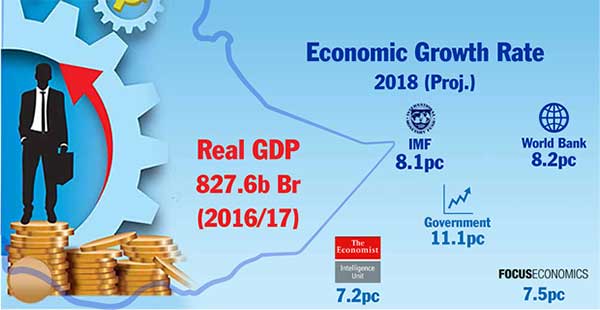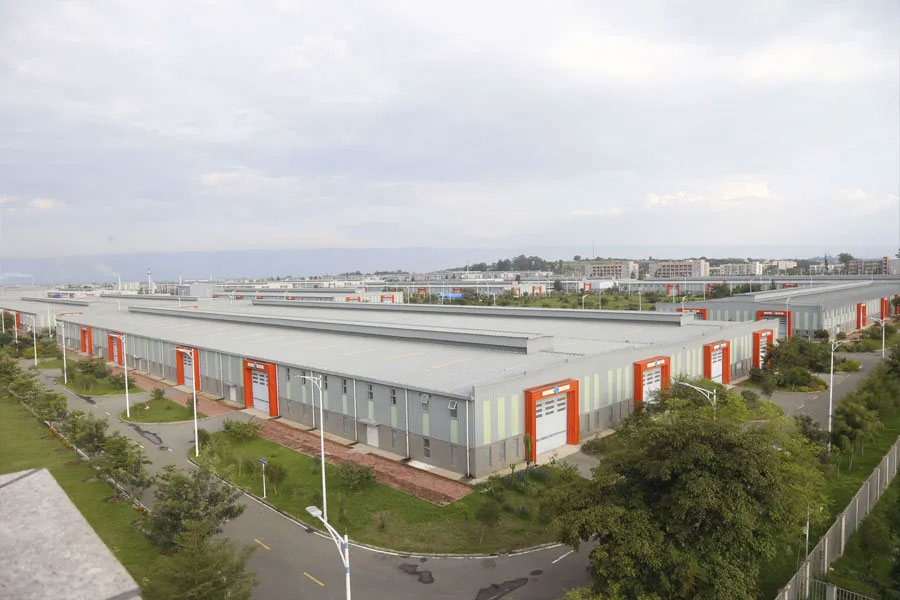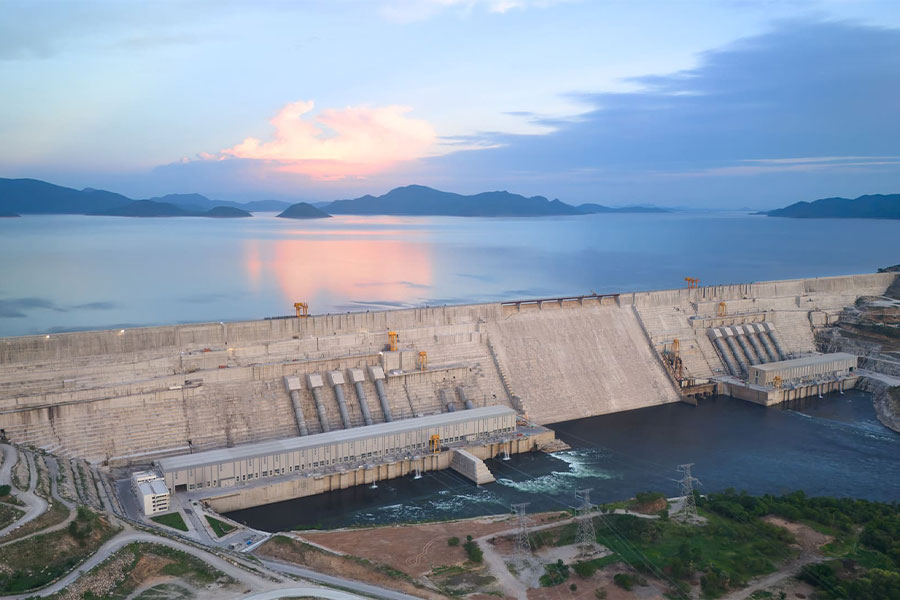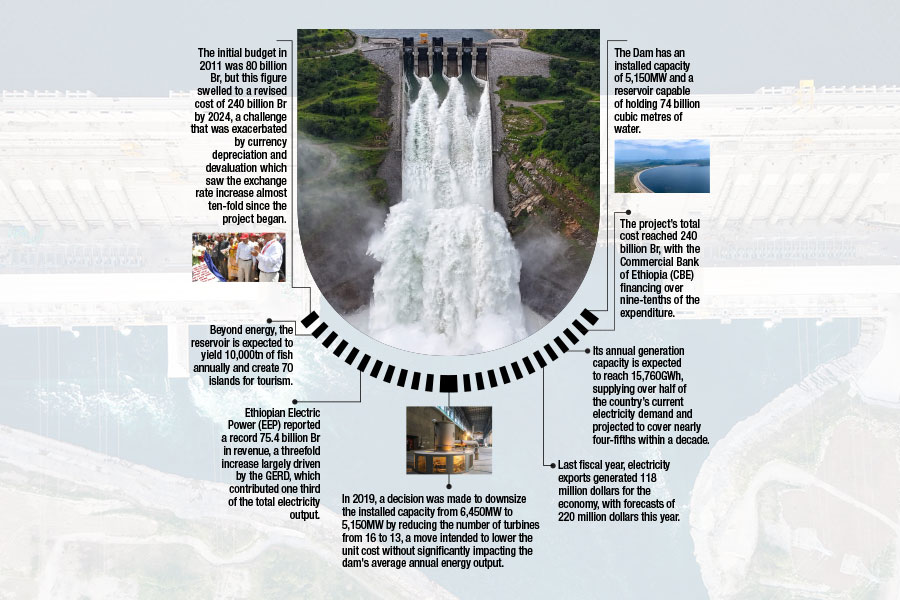
Viewpoints | Nov 16,2024
Feb 1 , 2019
By Asseged G. Medhin
Ethiopia’s economy is at a crossroads. The same old advice will not save it, but a pragmatic economic prescription should not be overshadowed by ideology and politics, Asseged G. Medhin (kolass799728@yahoo.com), deputy CEO of operations at the National Insurance Company of Ethiopia (NICE).
The image Ethiopia has been radiating for the past few years was bound to create certain assumptions that rational investors could not have found acceptable. Regulatory capacity and access to capital, inputs and infrastructure were never up to scruff to have ensured long-term profitability to begin with.
These were efforts carried out by a government that wanted to have the best of two worlds. There was some pragmatism in the assertion that some industries needed protection, but closed door policies across the board meant that know-how and competition would be lacking.
Considering the macroeconomic predicaments the nation is in, from inflation to declining export revenues, it is time political leaders take stock of the reality on the ground and rethink long-held economic policies.
The incumbents' fear of the unknown is understandable, but what is holding back the country mostly is their insistence on attaining short-term goals. As with most decisions that will have short- and medium-term impacts, policies that are geared toward achieving competitiveness in the long term are placed at a distance. Opening the capital account, liberalising the service sector and reducing public investment have consequences that few who hold power are willing to pay for politically.
Indeed, competition between players with vastly different experiences, capital and networks might have a lethal effect on local businesses in the outset. But it should also not be forgotten that such gradual and selective liberalisation opens the door toward new specialisations. There has been a dynamic response to globalisation in that entrepreneurs will be able to be a part of emerging industries, becoming a necessary investment for the future.
We have done an excellent job of holding onto, not just our cultures and traditions, but treasures we hold closely to our heart. But it has come at the expense of the dynamism current enterprises would have attained or the emergence of new businesses, markets or industries.
The double-digit gross domestic product (GDP) growth rate of the country has helped to sustain optimism at the economic direction the nation has taken. But there is debate lacking on the part of opposition parties, international institutions and the Ethiopian intelligentsia on how such growth can be justified in the face of rising inflation, falling export revenues and stagnant domestic revenue.
It is crucial that the nation recognise that few things will be achievable if different courses are not taken whenever the current one is evidently losing its balance. It would be even harder to protect the nation’s treasure if progress in the ventures of the 21st century are not made.
The argument for a localised approach to economic growth only works as long as the domestic market can offer the same opportunities the global one can, a falsity more true in Ethiopia than almost every other country in the world.
It is fortunate that, although not conclusively, we are seeing movement from the government in this regard. There is no clear roadmap for the way forward, but there are more forward-looking views than has been the case before on privatisation and liberalisation. Prime Minister Abiy Ahmed’s (PhD) administration has a more positive view of the private sector than any in the past four decades.
Capital markets, mergers and acquisitions, deregulation and accession into the World Trade Organisation are more inevitable today than ever. These could be outcomes of a macroeconomic crisis that is making it hard for the government to do anything else except acquiesce to the demands of creditors. But initiatives being taken to improve the business environment and to slightly smooth out foreign currency administration should give some room to assume that there are improvements in outlook.
If the administration keeps up the momentum while also improving the regulatory capacity of government, it can make a success of the economic reform. The nation will benefit by making use of the advantages that will come from the outside and the potential at home.
There are more international negotiators, advisors, financial engineers and economic analysts with a competitive advantage here in Ethiopia than the country gets credit for. Most importantly, our human power can compete on the world stage if only it gains the know-how attained through experience and competition. Liberalisation will also bring necessary funds into the economy, which is indispensable to new ventures and expansion.
PUBLISHED ON
Feb 01,2019 [ VOL
19 , NO
979]


Viewpoints | Nov 16,2024

Commentaries | Oct 07,2023

Editorial | Jan 07,2022

Viewpoints | Apr 26,2019

News Analysis | Jan 05,2020

Viewpoints | Jun 21,2025

My Opinion | Aug 05,2023

Fortune News | Nov 18,2023

Viewpoints | Apr 15,2023

News Analysis | Apr 20,2024

Photo Gallery | 156255 Views | May 06,2019

Photo Gallery | 146539 Views | Apr 26,2019

My Opinion | 135227 Views | Aug 14,2021

Photo Gallery | 135055 Views | Oct 06,2021

Dec 22 , 2024 . By TIZITA SHEWAFERAW
Charged with transforming colossal state-owned enterprises into modern and competitiv...

Aug 18 , 2024 . By AKSAH ITALO
Although predictable Yonas Zerihun's job in the ride-hailing service is not immune to...

Jul 28 , 2024 . By TIZITA SHEWAFERAW
Unhabitual, perhaps too many, Samuel Gebreyohannes, 38, used to occasionally enjoy a couple of beers at breakfast. However, he recently swit...

Jul 13 , 2024 . By AKSAH ITALO
Investors who rely on tractors, trucks, and field vehicles for commuting, transporting commodities, and f...

Sep 13 , 2025
At its launch in Nairobi two years ago, the Africa Climate Summit was billed as the f...

Sep 6 , 2025
The dawn of a new year is more than a simple turning of the calendar. It is a moment...

Aug 30 , 2025
For Germans, Otto von Bismarck is first remembered as the architect of a unified nati...

Aug 23 , 2025
Banks have a new obsession. After decades chasing deposits and, more recently, digita...

Sep 15 , 2025 . By AMANUEL BEKELE
The Grand Ethiopian Renaissance Dam (GERD), Africa's largest hydroelectric power proj...

Sep 13 , 2025
The initial budget in 2011 was 80 billion Br, but this figure swelled to a revised cost of 240 billion Br by 2024, a challenge that was exac...

Banks are facing growing pressure to make sustainability central to their operations as regulators and in...

Sep 15 , 2025 . By YITBAREK GETACHEW
The Addis Abeba City Cabinet has enacted a landmark reform to its long-contentious setback regulations, a...